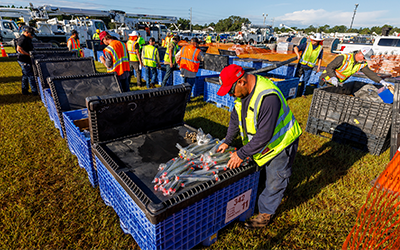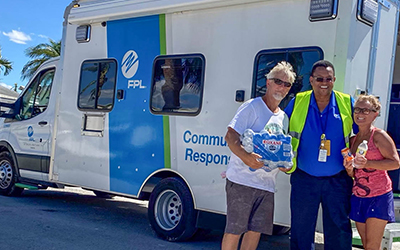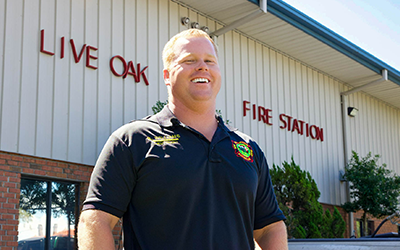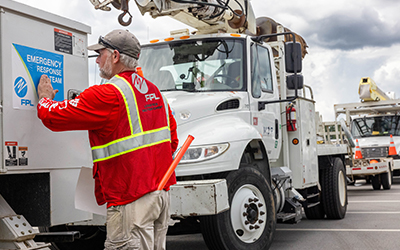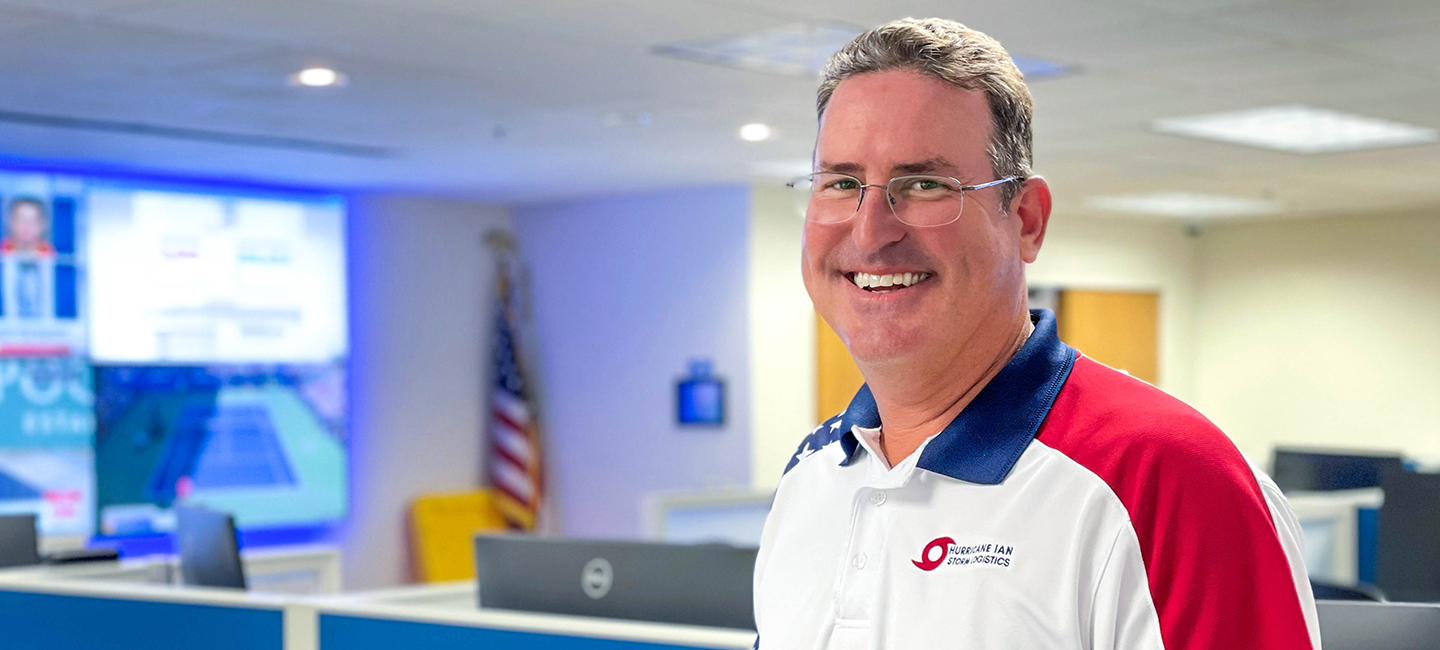
WEST PALM BEACH, Fla. - Hours before Hurricane Idalia made landfall near Keaton Beach, Ben Brodbeck and his logistics team prepared for a swift recovery. Armed with a pen and notepad inside Florida Power & Light Company’s (FPL) command center, his meticulous notes are a testament to the countless hours he'd spent preparing for this moment.
“Our job is to provide day-to-day support to the army of lineworkers and tree-clearing professionals who are restoring power in the affected areas,” Brodbeck said. “Then, we have to figure out how to mobilize them from location to location, following the storm’s path of destruction.”
As the senior manager for emergency preparedness in FPL’s logistics department, Brodbeck helps strategically set up staging sites, also known as mini cities, in areas closest to the damage caused by the hurricane.
At FPL, his department is known for being the first ones in and the last ones out. They establish cities that pop up in a matter of hours on properties like local airports or fairgrounds and provide crews restoring power with everything they need to get the job done.
This includes equipment and trucks, but it’s also a place to recharge after 16-hour workdays with hot meals, laundry services and mobile sleeper units that can accommodate any number of workers from under 100 people to upwards of 1,800.
“Our lineworkers and frontline crews are the face of hurricane recoveries, but successful restorations can’t happen without the behind-the-scenes logistical might displayed during Idalia,” said FPL Executive Vice President of Power Delivery Manny Miranda, who already had 46 storm responses under his belt at FPL before Idalia struck. “When the lights go out, every single minute counts for our customers. Having a world-class logistics team serving as our backbone truly makes a difference for our customers when they need us most by allowing us to focus on the job at hand and get the lights back on faster.”

But setting up small cities in disaster areas is not a small task. Staging sites cannot be set up too early nor too late, as any misstep could result in precious hours lost in the crucial process of restoring power.
It also requires round-the-year planning where every and any situation is thought of before it happens. With the help of his notepad, he crafts comprehensive emergency response plans that later serve as a blueprint outlining every step to guarantee a safe and speedy restoration.
“One of the biggest challenges is anticipating what will be needed, where and when before it's needed because you can't just snap your fingers and secure food and lodging for thousands of people,” he said. “Then, we commit to that before the hurricane makes landfall and that's kind of the artistic piece of it because we're making decisions oftentimes with incomplete information.”
Another challenge is re-mobilizing thousands of crews to new sites, following the storm’s path of destruction as it moves through the state and facing new challenges along the way.
“Sometimes a bridge is gone. In a moment’s notice, we’ve had to secure barges to take bucket trucks to islands or rent cranes to pull boats off distribution lines,” he said.
His training and experience enable him to keep a level head, make rapid decisions and steer the organization towards safety and operational stability. It’s a skill he’s learned with nearly 20 years in the business and by responding to dozens of hurricanes.
Before the notepad, his training for crisis management and mastering the art of decision-making started with Hurricane Charley in 2004. Without knowing any better, he showed up at a Daytona Beach staging site like a true Floridian: in flip-flops, boardshorts and a surfboard in his car.
“You can say I had a very grassroots education. I learned what not to do very quickly,” he said with a laugh. “For the record, the surfboard didn’t get used."
Today, safety is the cornerstone for everything he and his team do. Brodbeck takes pride in keeping his team of more than 400 strong safe every day. He’s not successful, he said, unless everybody gets home safely and that’s something that is drilled in all of their operational calls.
“I mean, really what we're doing is supporting a military mobilization and unfortunately, we have a lot of practice dealing with hurricanes,” Brodbeck said.
Even though logistics seems like it’s very much a science, there's an art to it and that’s what keeps this team on its toes. As Florida enters peak hurricane season, it serves as a reminder to take the time to prepare.
“You come up with a plan recognizing that you're going to have to adjust based on actual landfall intensity and damage,” he said. “But we're trained to make decisions for the next day while at the same time executing on the plan that's currently occurring, and that's not for the faint of heart. That’s why everyone should prepare year-round for a storm.”
